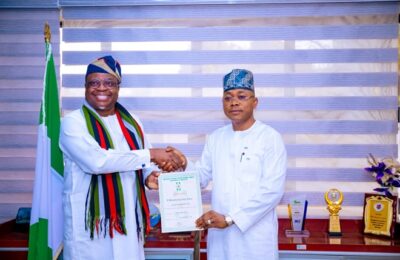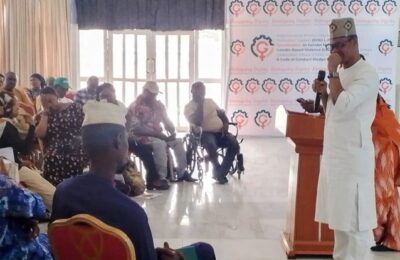President Bola Tinubu’s economic agenda is built on a neoliberal foundation, rooted in the belief that free markets alone can drive growth and prosperity. But for a country like Nigeria, marked by mass poverty, weak infrastructure, and deep inequality, this model is not only unsuitable, it is dangerous.
Tinubu’s alignment with neoliberalism is clear. His government has prioritized market-led reforms while reducing the state’s role in governance and public welfare. Free-market fundamentalists have praised these moves, arguing that Nigeria finally has a leader bold enough to make “tough economic decisions.” But history and global experience show that neoliberalism rarely delivers inclusive development, especially in countries with Nigeria’s socio-economic realities.
The fundamental flaw of Tinubu’s strategy is a failure to recognize that economics must be rooted in local context. Successful economies like China, South Korea, and Taiwan did not follow neoliberal orthodoxy. Instead, they adopted context-specific policies that prioritized the needs of their people. These countries invested heavily in public infrastructure, protected local industries, and used strategic state intervention to build globally competitive economies.
Neoliberalism, on the other hand, assumes that markets can solve all problems. It downplays governance, ignores inequality, and places too much faith in private actors motivated solely by profit. This model is inherently flawed because it treats economics as an abstract science rather than a tool for solving real-world problems. But development cannot be achieved through theory alone. It must be grounded in practical, common-sense solutions tailored to the realities of the people.
Tinubu and his team may be committed policy-makers, but they have chosen the wrong model. Their laissez-faire approach hands over decision-making to a narrow class of elites, comprador bourgeoisie, and corporate interests, who are not accountable to the public. This deepens inequality and shuts out the poor from economic participation.
A look at global examples exposes the limits of neoliberalism. Chile’s experiment with free-market reforms in the 1980s led to one of Latin America’s worst economic crises. Meanwhile, China achieved rapid growth by rejecting key neoliberal principles. Though it adopted market incentives, China did so within a tightly controlled framework. It protected strategic industries, created Special Economic Zones with specific rules, and empowered local governments through initiatives like the Township and Village Enterprises (TVEs). These were collectively owned businesses that spurred rural development, a concept completely at odds with neoliberal logic.
Despite the rhetoric, neoliberalism has never been about empowering the majority. It is about creating an economy that serves capital, not people. It favors privatization, deregulation, and minimal state intervention. But in countries like Nigeria, where millions lack access to basic services, such policies exacerbate poverty and weaken state institutions.
Tinubu’s belief in the power of the market is not the problem. The real issue is his blind faith in a model that has repeatedly failed in environments like Nigeria. The market cannot build hospitals, roads, or schools. It cannot create equitable wealth distribution or enforce social justice. These are the functions of governance, functions that neoliberalism undermines.
To build a truly inclusive economy, Nigeria must abandon the myth of neoliberalism as a universal solution. We need policies that prioritize the welfare of citizens, encourage productive public investments, and support local economic initiatives. The road to economic transformation lies not in copying foreign models, but in designing our own development paths, based on what works for us.
Until then, expecting poverty reduction or job creation under Tinubu’s neoliberal regime is not just unrealistic—it is economic self-deception.
– Audu Liberty Oseni,
Director, Centre for Development Communication
libertydgreat@gmail.com




